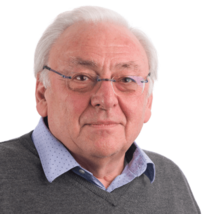Government
Sanofi and DNDi aim to eliminate sleeping sickness in Africa with promising Ph II/III results for new drug
The Drugs for Neglected Diseases initiative (DNDi) and Sanofi today said that their potential sleeping sickness treatment saw success rates of up to 95%…

The Drugs for Neglected Diseases initiative (DNDi) and Sanofi today said that their potential sleeping sickness treatment saw success rates of up to 95% from a Phase II/III study investigating the safety and efficacy of single-dose acoziborole.
The potentially transformative treatment for sleeping sickness would mainly be targeted at African countries, according to data published today in The Lancet Infectious Diseases medical journal. The clinical trial was led by DNDi and its partners in the Democratic Republic of the Congo (DRC) and Guinea, with the authors noting:
Given the high efficacy and good safety at all stages of disease, acoziborole eliminates the need for routine lumbar puncture at diagnosis and during follow-up, which requires trained staff, is associated with complications, and is a source of anxiety for patients. These advantages and the fact that a single oral dose would be more accessible to patients living in remote areas without easy access to health care, means that acoziborole holds promise in the efforts to reach the WHO goal of interrupting HAT [Human African trypanosomiasis] transmission by 2030.
Transmitted by the tsetse fly, HAT or sleeping sickness, is a neglected tropical disease that is mostly fatal when left untreated, and remains endemic in sub-Saharan Africa, mainly in the Democratic Republic of the Congo. The number of reported cases of the illness has fallen steeply over the last two decades, from almost 40,000 reported cases in 1998 (with estimates of over 300,000 undiagnosed cases) to less than 1,000 in 2020.
 Antoine Tarral
Antoine Tarral“By simplifying the treatment paradigm, acoziborole would be an innovation that enables a sustainable response to sleeping sickness for health systems. With these new data, we have hope that we may be able to finally eliminate the disease, once and for all, by opening the door to a ‘screen-and-treat’ approach at the village level,” Antoine Tarral, head of the sleeping sickness program at DNDi and co-author of the Lancet paper, said in a statement.
In July 2021, the FDA approved the first oral treatment for sleeping sickness (human African trypanosomiasis) from Sanofi and DNDi, and provided the partners with a priority review voucher that they may end up selling for about $100 million.

Here Are the Champions! Our Top Performing Stories in 2023
It has been quite a year – not just for the psychedelic industry, but also for humanity as a whole. Volatile might not be the most elegant word for it,…
AI can already diagnose depression better than a doctor and tell you which treatment is best
Artificial intelligence (AI) shows great promise in revolutionizing the diagnosis and treatment of depression, offering more accurate diagnoses and predicting…
Scientists use organoid model to identify potential new pancreatic cancer treatment
A drug screening system that models cancers using lab-grown tissues called organoids has helped uncover a promising target for future pancreatic cancer…













